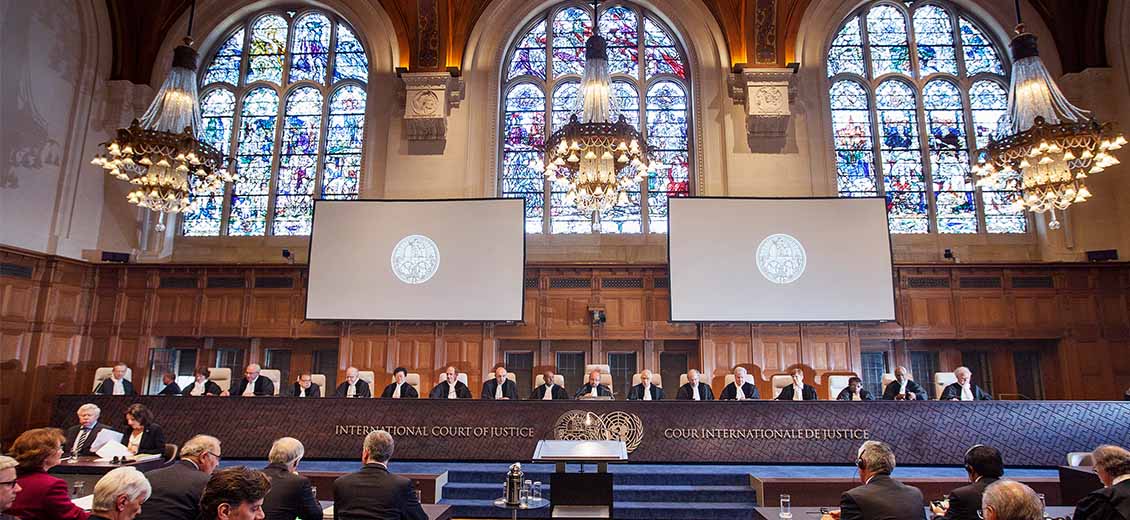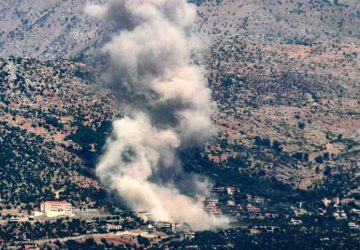Thousands of Israelis, including several far-right ministers, gathered in Jerusalem on Sunday, January 28, to call for the re-establishment of Jewish settlements in Gaza. Part of Israeli society is calling for the settlements to be repopulated, despite Benjamin Netanyahu’s apparent refusal to do so.
A few thousand Israelis in favor of relocating settlements in the Gaza Strip, including ministers, gathered in Jerusalem on Sunday evening, urging the Prime Minister to push ahead with the project.
Members of Benjamin Netanyahu’s Likud party and other far-right ministers took part in the rally as fighting intensified between the Israeli Army and the Palestinian Islamist movement Hamas in Gaza.
“The time has come to return to Gush Katif and encourage voluntary emigration,” said National Security Minister Itamar Ben-Gvir, referring to a group of Israeli settlements once located in Gaza before being evacuated in 2005.
“Retreat brings war, and if we don’t want another October 7, we have to go home, control the territory, and (…) encourage” the “voluntary” departure of Gazans, he added in a bellicose tone.
Eleven other ministers were present at the meeting, held in a packed Jerusalem conference center, according to the organizers.
“The Oslo Accords Are Dead”
Some speakers called for the expulsion of Palestinians from Gaza, judging that the resettlement of settlements was the only way to ensure Israel’s security.
Others chanted “the Oslo Accords are dead, the people of Israel live,” in reference to the agreements supposed to lead to the peaceful cohabitation of the two peoples, ratified in 1993 by PLO leader Yasser Arafat and Israeli Prime Minister Yitzhak Rabin at the White House in front of US President Bill Clinton.
Several participants carried weapons, while outside the convention center, vendors offered T-shirts reading, “Gaza is part of the land of Israel.”
The rally testifies to the fact that an extremist fringe, long a minority in Israel, is currently gaining ground there, at the risk of further deepening the differences between Israel and its American ally.
Israel has occupied the Gaza Strip as well as the West Bank and East Jerusalem since the 1967 war. Some 400,000 Israelis now live in West Bank settlements considered illegal by most of the international community, alongside three million Palestinians.
Israel, on the other hand, withdrew its citizens from 21 settlements in the Gaza Strip in 2005. The territory is home to 2.4 million Palestinians, the vast majority of whom have been displaced since fighting broke out in October.
Condemnation From Hamas
Hamas reacted to the conference by accusing Israel of going against the provisional rulings of the International Court of Justice (ICJ) concerning the war in Gaza.
“Israel is ignoring international law and UN resolutions by openly calling for the “voluntary migration” of Palestinians at this conference, during which 21 new illegal Israeli settlements were also presented,” the Palestinian movement said in a statement.
“We call on the international community and the United Nations to take a firm stand,” the statement said. Before calling on the international community to “clearly condemn this conference as a fascist conference based on the idea of ethnic cleansing.”
“Not a Realistic Goal”
The Israeli Prime Minister has so far never supported the plan to relaunch settlements in Gaza, declaring that the project was “not a realistic objective.” He has never yet organized a meeting of his government devoted to the “day after” the war.
In fact, when Benjamin Netanyahu uses these words, he is mainly addressing his American ally. In terms of domestic policy, he is careful not to openly reprimand the extremist elements in his cabinet, whose alliances enable him to stay in power.
His government, the most religious and ultranationalist in the country’s history, has prioritized the expansion of settlements in the occupied West Bank since coming to power at the end of 2022.
But his policy is in open contradiction with the approach of the United States, Israel’s staunch ally, which calls for an end to the process and the implementation of the two-state solution.
Earlier this year, Ben Gvir, who is also the leader of the far-right pro-settler Jewish Force party, had called for settlers to return to Gaza after the war, the day after a similar call from another far-right minister, Minister of Finance Bezalel Smotrich.
State Department spokesman Matthew Miller called their comments “irresponsible.”
With AFP






